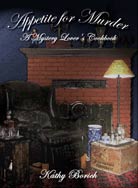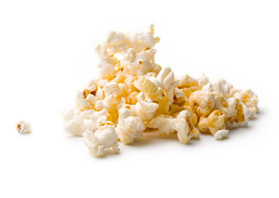Doubt: Roast Beef Au Jus Recipe
Year Released: 2008
Directed by: John Patrick Shanley
Starring: Meryl Streep, Philip Seymour Hoffman, Amy Adams, Viola Davis
(PG-13, 104 min.)

"To be once in doubt / Is once to be resolved." William Shakespeare
If you think a film named itself such so as to dispel any of it, you are surely to be disappointed. Instead, go to see the intricate craftsmanship that allows each phrase and every perceivable event to have at least two diametrically opposed interpretations. And watch carefully the two exquisitely realized leads to determine which is deserving of or perhaps even utterly beneath your contempt.
Part of the brilliance of the film is the well-chosen time period, 1964. It was when the world as we knew it then was about to be shaken – not with the casual brutality of the Great Depression or the chaos and carnage of the second world war that followed in its aftermath. This was a cultural cataclysm, when all the old certainties of a generation began to be laid waste.
In his sermon, young parish priest Father Flynn (Philip Seymour Hoffman) alludes to one event that has shaken many, the assassination of John F. Kennedy. But he reassures the congregation that their fears and doubts should never isolate them, that they are shared by many. Though it is never overtly mentioned, he and his comforting words are a product of another cosmic shift of the decade and the century, the newly minted ecumenical tolerance of Pope John XXIII and Vatican II.
Certainly not a product of this wishy washy tolerance is the St, Nicolas School principal, Sister Aloysius (Meryl Streep), dutifully admonishing her wayward charges during this sermon - a slap to the side of the head for a chatterer, a rude wakeup for one who is catnapping. But she is listening nonetheless, and the compassion comes off as weakness to her, and a dangerous weakness at that.
To her suspicious mind, if Father Flynn is sermonizing about doubt, then he must be experiencing some of his own, and that is suggestive. She tells her young charge, sweet and naïve Sister James (Amy Adams), to be watchful of the priest and report anything questionable to her.
Austerity and discipline are the bulwarks of Sister Aloysius’s life and we see them in the film’s fine details. It is a measure of our age that to most who have not lived through this era or a Catholic education, they seem almost comically exaggerated, The cough drops in Sister James’ desk drawer are tossed aside – “candy by another name.” Ballpoint pens are disparaged as the easy way out, hair barrettes are a forbidden vanity, and “Frosty the Snowman” rejected from the Christmas pageant as a pagan song that advocates magic.
Father Flynn, on the other hand, uses a ballpoint pen himself, and he has a friendly relationship with the parish boys, even teasing them about asking a girl to dance. When he consults with Sister Aloysius about the Christmas pageant, he suggests including more secular songs, taking three lumps of sugar in his tea while they discuss it. And he keeps his fingernails rather long.
So whether Donald Miller arrives on the scene or not, these two are destined to confront each other. The young altar boy provides the catalyst for their inevitable battle for dominance. Sister James reports Donald being called out of class by Father Flynn and then returning upset and perhaps smelling of alcohol. She also notices the priest discretely returning an undershirt to the boy’s locker.
As one critic puts it, Sister Aloysius has no proof, but she has her certainty. And she will not rest until she defeats her young antagonist. Their verbal battles are beautiful, each of the seasoned actors bringing out the best in the other. At one point Father Flynn beseeches, “Where is your compassion?”
Streep’s Sister Aloysius responds with a flat-toned defiance: “Nowhere you can get to it.”
Donald’s mother (Viola Davis), in a short scene that has earned her a best supporting actress nomination, adds some background that makes the search for the truth even more tortured.
We have an ending rather than a resolution, though many come away with a certainty as positive and insubstantial as Sister Aloysius’s. I, for one, do not, and admire instead, the purposeful ambiguity that shrouds Doubt as surely as it envelopes the mystery of our faith.
—Kathy Borich
Film-Loving Foodie
It is not just age that divides the old traditional nun from the young, charismatic priest, but their gender roles as well, gender roles that were perhaps even more stringent within the Church than the secular world.
While Sister Aloysius and the other nuns sit down to a meal of silence, soggy potatoes, milk, and grisly meat, Father Flynn and his fellow priests drink wine, share laughter, colorful tales, and rare roast beef at their rowdy table.
Since you probably haven’t taken the vows, I’ll leave the soggy super to the poor Sisters of Charity and instead give you a taste from Father Flynn’s kitchen.
There is no doubt about it. Roast Beef Au jus is sinfully delicious.
You might enjoy it with these Shepherd’s Potatoes, especially if you need some gentle pastoral guidance returning from the roast beef decadence.
Brocoli with Cheesy Mushroom Sauce is surely to please as well.
Roast Beef Au Jus
Au jus is French for “with juice,” meaning meat served with the natural juices instead of gravy.
- Select a standing, aged prime rib.
- Let stand at room temperature for 1 hour.
- Preheat oven to 375 degrees.
- Season and place meat in shallow roasting pan. Do not cover or add water.
- Put roast in oven. Cook for 1 hour. Turn off heat but do not open oven door at any time until ready to serve.
- Regardless of time roast has been in oven (30 or 40 minutes) before serving, turn oven on 375 degrees, cook for 30 or 40 minutes more before serving.
- Now, open door. Ready to serve. Meat will be brown and crisp on the outside and pink all the way through, medium rare and juicy. Use same procedure on any size roast or any good cut of roast.
Recipe Source: cooks.com



 Rainy Day Rentals
Rainy Day Rentals